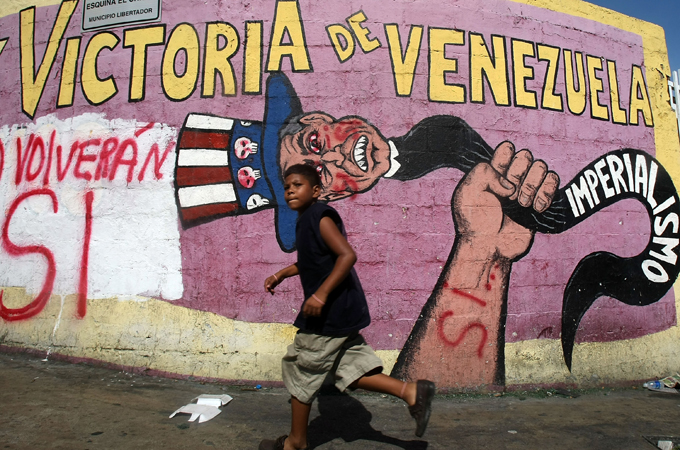Re: Hugo Chavez 'only kept alive by life support' after cancer surgery
posted on
Jan 03, 2013 12:12AM

Crystallex International Corporation is a Canadian-based gold company with a successful record of developing and operating gold mines in Venezuela and elsewhere in South America

Timeline: Venezuela during the Chavez period |
|
Fighting a battle against cancer, "El Comandante" has polarised Venezuela and helped to unite Latin America.
Last Modified: 31 Dec 2012 08:54
|

Since his election in 1998, Venezuelan President Hugo Chavez has criticised US policies [GALLO/GETTY]
|
|
1992 - Hugo Chavez, then a military officer, leads a failed coup attempt and is jailed. 1994 - Chavez is freed from prison and forms a new political party. 1998 - Hugo Chavez is elected president. 1999 - Chavez takes office promising to reduce poverty and corruption. 2000 - Chavez wins presidential elections by a margin above 20 per cent, against challenger Francisco Arias. 2001 - Venezuela's government decrees a new law requiring PDVSA, the state petroleum company, to hold a majority stake in all upstream oil projects. 2002 - A strike by workers at PDVSA creates political chaos. The opposition launches a coup that ousts Chavez for three days, until democracy is restored by Chavez supporters and loyal members of the security forces. 2002-2003 - Chavez sacks about 20,000 PDVSA employees in light of the coup attempt, and begins using the energy company to finance social programmes. 2004 - Voters defeat an effort to recall Chavez by a wide margin. 2006 - During a vote with exceptionally high turnout, Chavez wins re-election to a new six-year term. 2007 - Chavez takes control over four heavy oil products in the Orinoco belt worth billions of dollars. US oil firms Exxon Mobil and ConocoPhillips leave the country and sue for compensation. 2007 - Chavez suffers his first electoral defeat in a referendum changing dozens of articles in Venezuela's constitution, including the abolition of term limits. 2008 - Oil prices peak above $145 per barrel, and PDVSA is put in charge of a major food importing campaign to deal with supply shortages. 2010 - Congressional elections lead to significant gains for the opposition, but Chavez's United Socialist Party still retains a majority. 2011 - Chavez undergoes cancer surgery in Cuba. July 4, 2011 - The president makes a surprise return to Venezuela ahead of the country's Independence Day celebrations. September 22, 2011 - The president his fourth and course of chemotherapy. December 2, 2011 - Chavez hosts a regional summit, minus representatives from the United States, in Caracas. February 21, 2012 - Chavez says he will undergo another operation after a lesion was found in the same area where he had the tumor. December 30, 2012 - Nicolas Maduro, Venezuela's vice president, has said President Hugo Chavez is suffering from "new complications" following his cancer surgery in Cuba. Posted By Joshua Keating The attention right now may be focused on President Hugo Chavez's health, but InsightCrime shares another grim milestone for Venezuela:
If the study's findings are true, it would give Venezuela the highest murder rate in South America and -- most likely -- the second highest in the world after Honduras, which saw 91.6 homicides per 100,000 people in 2011 according to the UNODC. The orginzation's most recent statistics, released last year, had Venezuela tied with Jamaica at a homicide rate of 40.9 behind Honduras, El Salvador, and Ivory Coast. |